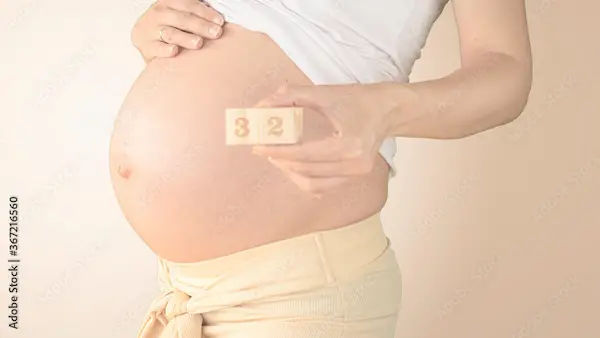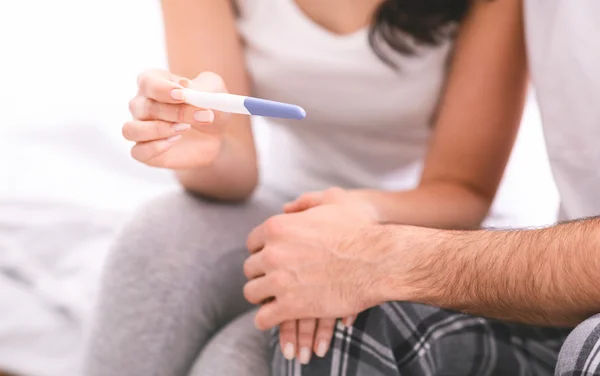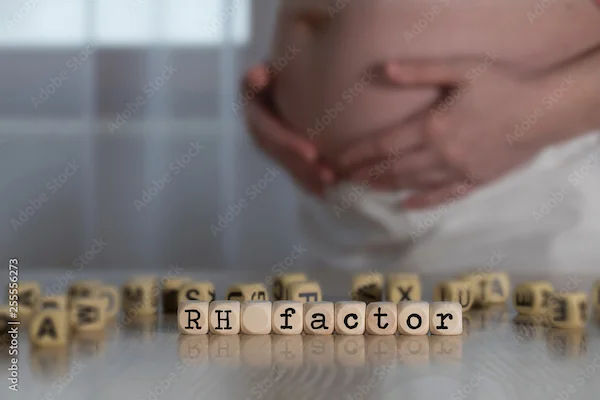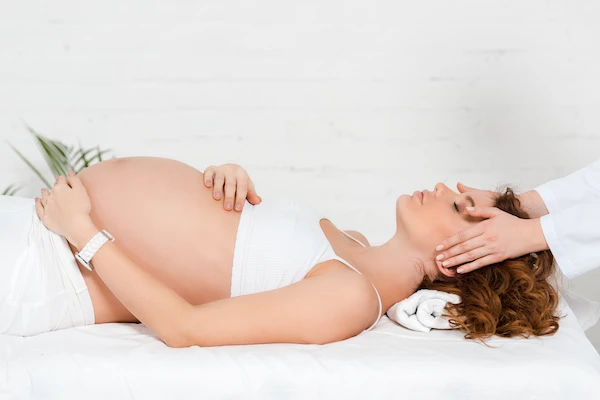Guide to Low Bp During Pregnancy
Learn about low blood pressure in pregnancy, its causes, symptoms, and safe management tips. Discover when it’s normal, when to seek medical help, and how to stay comfortable and healthy.


Pregnancy is a journey of incredible physical changes, and your cardiovascular system is no exception. While much attention is given to high blood pressure (preeclampsia), experiencing low blood pressure during pregnancy is also a common, though often less discussed, occurrence. Medically known as hypotension, this drop in blood pressure is typically a normal adaptation as your body works to support your growing baby. However, understanding the symptoms, causes, and effective management strategies is crucial for your comfort and safety. This guide will walk you through everything you need to know about hypotension in pregnancy, from why it happens to practical tips for feeling better every day. We’ll explore how to distinguish between harmless dips and when it's time to call your doctor, empowering you to navigate this aspect of your pregnancy with confidence.
Understanding Blood Pressure Changes in Pregnancy
What is Considered Low Blood Pressure (Hypotension)?
Blood pressure is measured as two numbers: systolic (pressure when your heart beats) over diastolic (pressure when your heart rests between beats). A normal reading is typically around 120/80 mmHg. Low blood pressure in pregnancy is generally defined as a reading lower than 90 mmHg systolic or 60 mmHg diastolic. It's important to note that every woman is different. If your baseline blood pressure is normally on the lower end, you might not experience any symptoms until it drops significantly.
Why Does Blood Pressure Drop During Pregnancy?
This drop is a fundamental physiological shift, not a malfunction. A key cause of low BP in pregnancy is hormonal changes. The hormone progesterone causes your blood vessels to relax and dilate, which improves blood flow to the placenta and your baby but can lower the overall pressure in your system. Furthermore, your blood volume increases by up to 50% to support the fetus, but this expansion can temporarily outpace the increase in red blood cells, leading to a relative dilution and a drop in pressure.
Common Causes and Triggers of Low BP
Hormonal Shifts: The Primary Driver
As mentioned, progesterone is the main culprit behind vasodilation. This is a natural and essential process for a healthy pregnancy, though it can lead to feelings of lightheadedness, especially in the first and second trimesters.
Supine Hypotensive Syndrome
This is a unique cause of dizziness during pregnancy that occurs in the second and third trimesters. When you lie flat on your back, the weight of your growing uterus can compress the major vein (the inferior vena cava) that returns blood to your heart. This compression reduces cardiac output and can cause a sudden, significant drop in blood pressure, making you feel dizzy, nauseous, and short of breath until you change position.
Other Contributing Factors
Dehydration: Vomiting from morning sickness or simply not drinking enough fluids can reduce blood volume, triggering a drop in pressure.
- Anaemia: A low red blood cell count means less oxygen is carried in your blood, which can exacerbate feelings of
fatigue and dizziness associated with low BP. - Prolonged Standing: Standing in one place for too long can cause blood to pool in your legs, reducing circulation to your upper body and brain.
- Certain Deficiencies: A lack of essential vitamins like B12 and folate can contribute to anaemia and worsen symptoms.
- Underlying Health Conditions: In rare cases, issues with the heart, endocrine system (e.g., thyroid problems), or neurological system can cause low blood pressure.
Recognising the Symptoms: When to Pay Attention
Knowing the signs of low blood pressure during pregnancy helps you take action before you feel worse. Common symptoms include:
- Dizziness or Lightheadedness: Especially when standing up quickly (orthostatic hypotension).
- Fainting (Syncope): Feeling like you might "black out."
- Nausea: An unsettled stomach can accompany a sudden drop in BP.
- Blurred or Tunnel Vision: Your vision may temporarily blur or go out.
- Fatigue: A pervasive feeling of tiredness that isn't always relieved by rest.
- Lack of Concentration: Feeling "foggy" or unable to focus.
- Excessive Thirst: This can be a sign of dehydration, which is linked to low BP.
- Cold, Clammy, or Pale Skin: Caused by reduced blood flow to the skin's surface.
Potential Risks and Complications
For the majority of women, low blood pressure in pregnancy is manageable and not dangerous. The primary risk is injury from a fall due to fainting or severe dizziness. However, some studies suggest that persistent, very low blood pressure may be associated with a higher risk of certain complications, such as low birth weight or preterm birth, though the evidence is less clear than it is for high blood pressure. The body's natural prioritisation of blood flow to the placenta is usually very effective at protecting the baby.
Effective Management and Home Remedies
Dietary Adjustments for Low BP
- Stay Hydrated: This is the number one rule. Drink plenty of water throughout the day. If you're struggling with plain water, try adding lemon, cucumber, or mint, or sip on broth or electrolyte-replenishing drinks (check with your doctor first).
- Eat Small, Frequent Meals: Large meals can divert blood to your digestive tract and cause a drop in pressure. Grazing on smaller meals and healthy snacks helps maintain stable blood sugar and blood pressure.
- Increase Salt Intake Slightly: (Crucial Note: Only do this if your doctor specifically recommends it.) While too much salt is a problem for high blood pressure, a modest increase can help raise low BP. Never drastically change your salt intake without medical guidance.
Lifestyle Modifications
- Rise Slowly: When getting out of bed or standing up from a chair, do it in stages. Sit on the edge of the bed for a minute before standing up.
- Avoid Prolonged Standing: If your job requires standing, try to shift your weight from foot to foot and take sitting breaks when possible.
- Sleep on Your Left Side: This is the best position to prevent supine hypotensive syndrome and improve circulation to your heart and baby.
- Wear Compression Stockings: These help prevent blood from pooling in your legs and encourage better circulation throughout your body.
- Take Cool Baths: Avoid hot baths or showers, as heat can cause vasodilation and worsen symptoms. Opt for lukewarm or cool water instead.
When to Seek Medical Help
While usually normal, there are times when low blood pressure warrants a call to your healthcare provider:
- If you experience frequent fainting spells.
- If dizziness is severe, persistent, and interferes with your daily life.
- If you experience chest pain or heart palpitations.
- If you have shortness of breath.
- If you have any head injury from a fall due to fainting.
Always report any concerning symptoms to your doctor or midwife. They can rule out other potential causes like anaemia, heart issues, or neurological problems.
Conclusion
Navigating low blood pressure during pregnancy can be challenging, but it's most often a temporary phase of your body's amazing adaptation to growing a new life. By understanding the causes—from hormonal shifts to positional changes—you can employ simple, effective strategies to manage the symptoms. Prioritising hydration, mindful movement, and a balanced diet are your best tools for maintaining comfort. Remember, while this condition is typically harmless, your peace of mind is paramount. Keep an open dialogue with your prenatal care team about any symptoms you experience. They are there to support you and ensure both you and your baby remain healthy throughout this incredible journey. Listen to your body, rest when you need to, and trust in your ability to manage these changes.
Consult a Specialist for Personalised Advice
Consult a Specialist for Personalised Advice

Dr. Rajib Ghose
General Physician/ Internal Medicine Specialist
25 Years • MBBS
East Midnapore
VIVEKANANDA SEBA SADAN, East Midnapore

Dr Suseela
General Physician
5 Years • MBBS
Bengaluru
Apollo Medical Center, Marathahalli, Bengaluru

Dr D M Karthik
General Practitioner
4 Years • MBBS, Fellowship in Diabetes Mellitus, Advance certificate in Diabetes Mellitus, Derma Nutrition Certification
Visakhapatnam
Apollo 24|7 Clinic - Andhra Pradesh, Visakhapatnam

Dr. Suvadeep Sen
Critical Care Specialist
12 Years • MBBS, MD, FNB (CRITICAL CARE MEDICINE), EDIC
Mumbai
Apollo Hospitals CBD Belapur, Mumbai

Dr. Vijay Maurya
General Practitioner
30 Years • MBBS
Ahmedabad
Anand Daycare Clinic, Ahmedabad


.webp)

